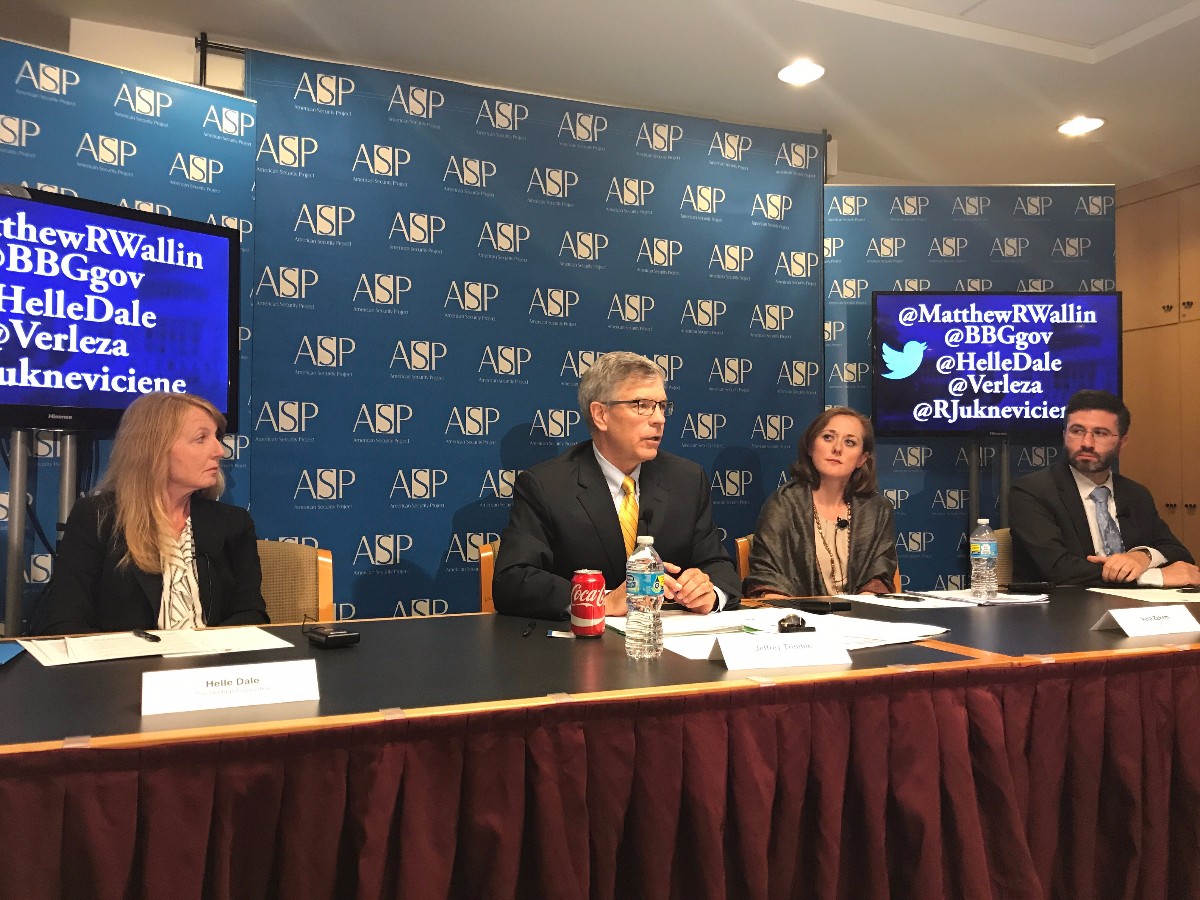 Elsa Yammin / ASP
Elsa Yammin / ASP
Event Recap: Facing Russian Propaganda and Disinformation
On June 28th, the American Security Project hosted an event on Facing Russian Propaganda and Disinformation. The panel included Vera Zakem, CNA’s Director of Strategy and Partnerships for the Center for Strategic Studies; Jeffrey Trimble, IBB Deputy Director for the Broadcasting Board of Governors; and Helle Dale, Senior Fellow for Public Diplomacy at the Heritage Foundation’s Margaret Thatcher Center for Freedom and Davis Institute for National Security and Foreign Policy. The discussion was moderated by ASP’s Fellow for Public Diplomacy Matthew Wallin, and was opened with introductory remarks from Rasa Juknevičienė, Vice-President of the NATO Parliamentary Assembly and Former Minister of National Defense of Lithuania.
Mrs. Juknevičienė opened the panel by pointing out that discussion of Russian propaganda and disinformation is a new topic for Washington D.C. yet is not new for Europe and the Baltic states. She described how Russian influence has grown to include tools like television and social media, and today “[Russia’s] lies… are much more professional” and trustworthy-sounding, thus causing more issues in “front line” Baltic States including Lithuania and Ukraine. In closing, Juknevičienė stressed that Kremlin-owned channels are not media but rather weapons, and that these outlets are “symptoms” of a greater disease – the Kremlin, corruption, and the preservation of the kleptocratic regime.

Facing Russian Propaganda and Disinformation, Elsa Yammin/ASP
Ms. Zakem made it clear that Russian efforts to spread propaganda and disinformation goes beyond the fake news phenomenon to a broader campaign to undermine elements of Western democracy. She also made clear the fact that one reason why people across societies are so susceptible to Russian disinformation is because of the speed and volume at which information is spread on social media and other platforms does not incentivize average people to “think before they click.” Additionally, Ms. Zakem stated that Russian efforts to influence go beyond spreading propaganda and disinformation to also include leveraging ethnic and economic ties to leverage influence wherever possible. Thus, it will take a holistic approach to combat Russian media influence.
Mr. Trimble, as a leading figure in US international broadcasting, focused largely on how the Broadcasting Board of Governors (BBG) and its media outlets are working to counter Russian propaganda and disinformation. Generally speaking, BBG has three primary goals for its media outlets: to present accurate, objective, and comprehensive news to as wide of an audience as possible, to showcase American culture and thinking, and discuss US policy with the outside world. Russia is one of the five primary targets of US international broadcasting today where BBG works to bring “no-spin news” to audiences. Rather than countering Russian state-owned media outlets directly with counterpropaganda, US media projects like Current Time focus on filling the gaps in coverage made by the stories ignored by Russian state-owned media or the news manufactured by Russian agencies.
Ms. Dale reiterated that only recently “Washington and the U.S. [have] woken up” to Russian propaganda and disinformation. She reminded the audience that Russian propaganda was preceded by Soviet propaganda and evolved into modern ideological warfare through media outlets. Today, the Russian media works to influence, confuse, and “make all of us doubt the information we receive.” Particularly for the United States, Russian efforts serve to “make a lot of Americans confused about their own democracy,” and the effectiveness is proven by the lingering confusion from past elections and recent claims of Russian influence. By sewing “germs of doubt,” Russian media is successful because it cultivates doubt in the existence of objective truth.
See the full video of the event below.






